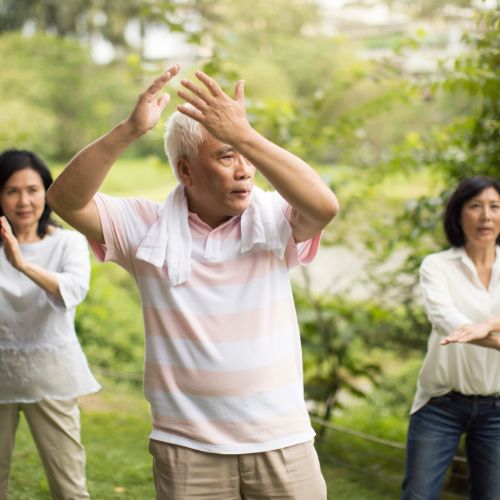
Building Healthy Coping Skills and Resilience in Kids and Young Adults
In today’s world, children and young adults face numerous challenges that can take a toll on their mental health. These challenges range from academic stress to family conflicts and social pressures and can lead to anxiety, depression, and other mental health issues. However, building healthy coping skills and resilience in children and young adults can help them manage these challenges and thrive despite the difficulties they encounter.
Coping skills are the strategies that individuals use to manage their emotions, thoughts, and behaviors when facing challenging situations. Resilience, on the other hand, refers to the ability to bounce back from setbacks, adapt to change, and persevere in the face of adversity. Both coping skills and resilience are essential for healthy development and can be cultivated through intentional practices and supportive environments.
Here are some tips for building healthy coping skills and resilience in kids and young adults:
Encourage open communication
Encouraging open communication is essential for building healthy coping skills and resilience in children and young adults. Creating a safe and supportive environment where they can express their thoughts and feelings without fear of judgment can help them develop a sense of trust and confidence in themselves and others.
Model healthy coping behaviors
Modeling healthy coping behaviors is another essential way to build healthy coping skills and resilience in kids and young adults. Parents and caregivers can demonstrate effective coping strategies by managing their own emotions, taking care of themselves, and seeking support when needed. When children see their role models practicing healthy coping behaviors, they are more likely to adopt them themselves.
Promote self-care
Promoting self-care is critical for building healthy coping skills and resilience in kids and young adults. Encouraging them to take care of their physical, emotional, and mental health can help them develop healthy habits that can carry over into adulthood. Activities such as exercise, meditation, journaling, and spending time in nature can help them manage stress and promote emotional well-being.
Foster a sense of purpose and meaning
Fostering a sense of purpose and meaning can help children and young adults develop resilience by giving them a sense of direction and motivation. Encouraging them to pursue their interests, explore their values, and set goals can help them develop a sense of purpose and meaning in life.
Teach problem-solving skills
Teaching problem-solving skills is critical for building healthy coping skills and resilience in kids and young adults. Helping them develop skills such as identifying problems, brainstorming solutions, and evaluating outcomes can help them feel more confident in their ability to handle challenges.
Encourage healthy relationships
Encouraging healthy relationships can also help children and young adults develop resilience by providing them with a support system. Having close relationships with family, friends, and mentors can help them feel connected and supported during difficult times. Encouraging healthy communication and conflict-resolution skills can also help them develop positive relationships and manage stress.
Foster a growth mindset
Fostering a growth mindset is critical for building resilience in kids and young adults. A growth mindset is a belief that one’s abilities and intelligence can be developed through effort and hard work. Encouraging children to embrace challenges, persist through setbacks, and learn from failure can help them develop a growth mindset and build resilience.
Provide opportunities for autonomy and independence
Providing opportunities for autonomy and independence can also help children and young adults develop resilience by giving them a sense of control over their lives. Encouraging them to make decisions, take risks, and learn from their experiences can help them develop a sense of self-efficacy and resilience.
Encourage reflection and self-awareness
Encouraging reflection and self-awareness can help children and young adults develop healthy coping skills and resilience by helping them understand their emotions, thoughts, and behaviors. Activities such as journaling, mindfulness, and self-reflection can help them become more aware of their inner experiences and develop the ability to regulate their emotions and behaviors.
Build problem-solving and decision-making skills
Building problem-solving and decision-making skills is another crucial element of developing healthy coping skills and resilience in children and young adults. Teaching them how to analyze situations, identify potential solutions, and make informed decisions can help them feel more confident and competent when facing challenges.
Encourage positive self-talk
Encouraging positive self-talk is another important strategy for building healthy coping skills and resilience in children and young adults. Helping them recognize and challenge negative self-talk can help them develop a more positive and optimistic outlook on life. Positive self-talk can also help them manage stress and build resilience by promoting self-esteem and confidence.
Teach mindfulness and relaxation techniques
Teaching mindfulness and relaxation techniques can help children and young adults develop healthy coping skills and resilience by promoting emotional regulation and stress management. Mindfulness techniques, such as deep breathing, meditation, and yoga, can help them stay present and focused, reduce anxiety and depression, and improve overall well-being.
In conclusion, building healthy coping skills and resilience in children and young adults is essential for promoting mental health and well-being. Encouraging open communication, modeling healthy coping behaviors, promoting self-care, fostering a sense of purpose and meaning, teaching problem-solving skills, encouraging healthy relationships, fostering a growth mindset, providing opportunities for autonomy and independence, encouraging reflection and self-awareness, building problem-solving and decision-making skills, encouraging positive self-talk, and teaching mindfulness and relaxation techniques are all important strategies for building healthy coping skills and resilience in children and young adults. By implementing these strategies, parents, caregivers, and educators can help children and young adults develop the skills they need to thrive and succeed in life.


